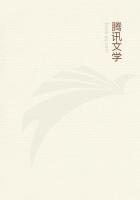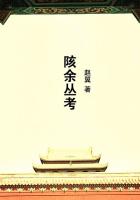And now I come to two points in method which have to do especially with humorous stories.The first is the power of initiating the appreciation of the joke.Every natural humorist does this by instinct and the value of the power to story-teller can hardly be overestimated.To initiate appreciation does not mean that one necessarily gives way to mirth, though even that is sometimes natural and effective; one merely feels the approach of the humorous climax, and subtly suggests to the hearers that it will soon be "time to laugh." The suggestion usually comes in the form of facial expression, and in the tone.And children are so much ******r, and so much more accustomed to following another's lead than their elders, that the expression can be much more outright and unguarded than would be permissible with a mature audience.
Children like to feel the joke coming, in this way; they love the anticipation of a laugh, and they will begin to dimple, often, at your firstunconscious suggestion of humor.If it is lacking, they are sometimes afraid to follow their own instincts.Especially when you are facing an audience of grown people and children together, you will find that the latter are very hesitant about initiating their own expression of humor.It is more difficult to make them forget their surroundings then, and more desirable to give them a happy lead.Often at the funniest point you will see some small listener in an agony of endeavor to cloak the mirth which he--poor mite-- fears to be indecorous.Let him see that it is "the thing" to laugh, and that everybody is going to.
Having so stimulated the appreciation of the humorous climax, it is important to give your hearers time for the full savor of the jest to permeate their consciousness.It is really robbing an audience of its rights, to pass so quickly from one point to another that the mind must lose a new one if it lingers to take in the old.Every vital point in a tale must be given a certain amount of time: by an anticipatory pause, by some form of vocal or repetitive emphasis, and by actual time.But even more than other tales does the funny story demand this.It cannot be funny without it.
Every one who is familiar with the theatre must have noticed how careful all comedians are to give this pause for appreciation and laughter.Often the opportunity is crudely given, or too liberally offered; and that offends.But in a reasonable degree the practice is undoubtedly necessary to any form of humorous expression.
A remarkably good example of the type of humorous story to which these principles of method apply, is the story of "Epaminondas." It will be plain to any reader that all the several funny crises are of the perfectly unmistakable sort children like, and that, moreover, these funny spots are not only easy to see; they are easy to foresee.The teller can hardly help sharing the joke in advance, and the tale is an excellent one with which to practice for power in the points mentioned.
Epaminondas is a valuable little rascal from other points of view, and I mean to return to him, to point a moral.But just here I want space for a word or two about the matter of variety of subject and style in school stories.
There are two wholly different kinds of story which are equallynecessary for children, I believe, and which ought to be given in about the proportion of one to three, in favor of the second kind; I make the ratio uneven because the first kind is more dominating in its effect.
The first kind is represented by such stories as the "Pig Brother," which has now grown so familiar to teachers that it will serve for illustration without repetition here.It is the type of story which specifically teaches a certain ethical or conduct lesson, in the form of a fable or an allegory,--it passes on to the child the conclusions as to conduct and character, to which the race has, in general, attained through centuries of experience and moralizing.The story becomes a part of the outfit of received ideas on manners and morals which is an inescapable and necessary possession of the heir of civilization.
Children do not object to these stories in the least, if the stories are good ones.They accept them with the relish which nature seems to maintain for all truly nourishing material.And the little tales are one of the media through which we elders may transmit some very slight share of the benefit received by us, in turn, from actual or transmitted experience.
The second kind has no preconceived moral to offer, makes no attempt to affect judgment or to pass on a standard.It simply presents a picture of life, usually in fable or poetic image, and says to the hearer, "These things are." The hearer, then, consciously or otherwise, passes judgment on the facts.His mind says, "These things are good;" or, "This was good, and that, bad;" or, "This thing is desirable," or the contrary.
The story of "The Little Jackal and the Alligator" is a good illustration of this type.It is a character-story.In the ***** form of a folk tale, it doubtless embodies the observations of a seeing eye, in a country and time when the little jackal and the great alligator were even more vivid images of certain human characters than they now are.Again and again, surely, the author or authors of the tales must have seen the weak, small, clever being triumph over the bulky, well-accoutred, stupid adversary.Again and again they had laughed at the discomfiture of the latter, perhaps rejoicing in it the more because it removed fear from their own houses.And probably never had they concerned themselves particularly with the basic ethics of the struggle.It was simply one of the things they saw.It was life.
So they made a picture of it.















